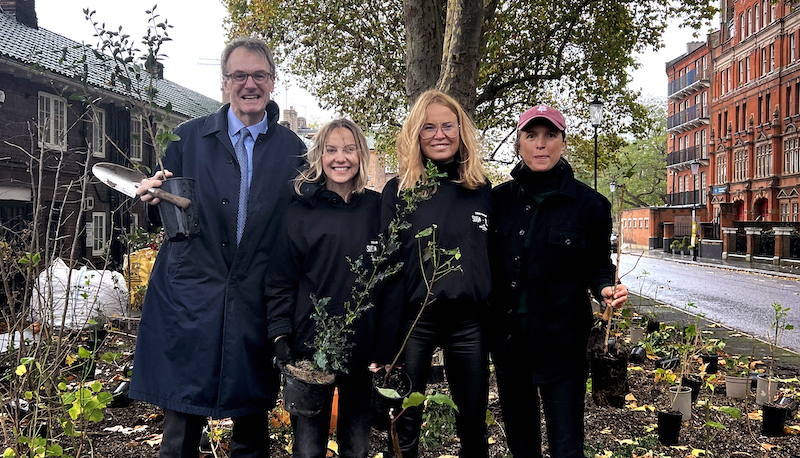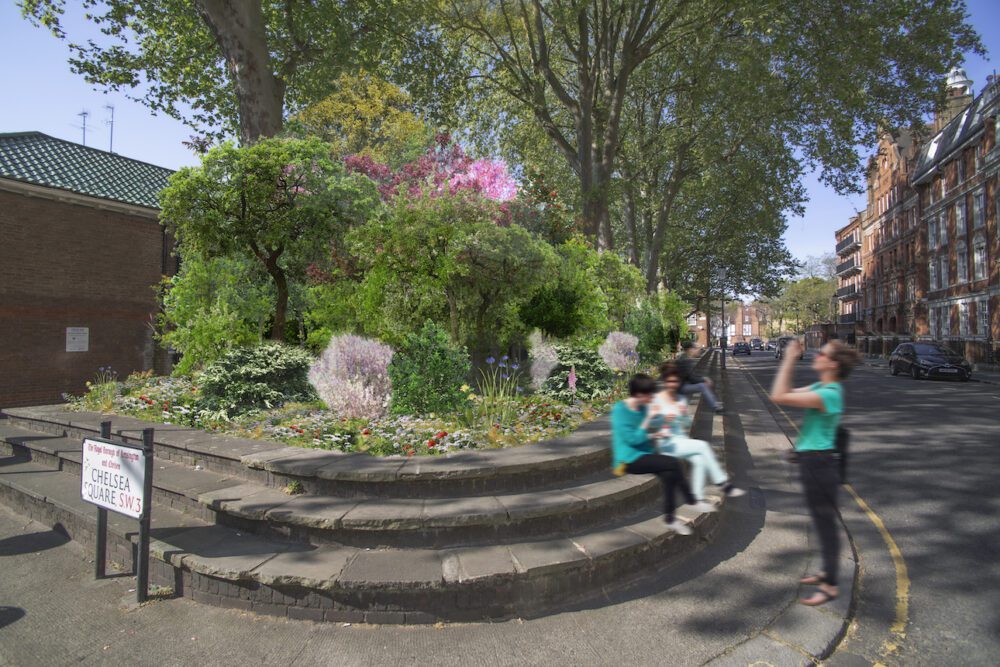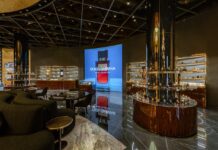At the heart of a residential square, between the bustling King’s Road and River Thames and adjoining two hospitals (the Royal Brompton and Royal Marsden), ‘Serenity Forest’ will see 240sqm of previously concreted land planted with 780 trees and shrubs. With intentions of becoming self-sustaining within three years, this project is a blossoming example of urban rewilding and ecological sustainability.
This pocket forest was first displayed at the entrance to Chelsea Flower Show in 2022, illustrating how minimal urban space can create maximal biodiversity, reintroduce indigenous species and reconnect people with nature in our cities. Building to a ‘crown’, it also celebrated Her Majesty’s Platinum Jubilee and will be planted in its permanent home on Chelsea Square in honour of the Queen’s Green Canopy project.
It is the second time that SUGi, the globally renowned organisation dedicated to restoring 100% native forests in urban spaces, has joined forces with Louis Vuitton and Cadogan who own and manage around 90 acres of Chelsea and Knightsbridge, to increase the neighbourhood’s biodoversity and contribute towards healthier air quality. The first project saw a pocket forest planted on Pont Street in Chelsea in autumn 2021.
Moët & Chandon join as a partner for Chelsea Square as part of their Natura Nostra programme to protect flora and fauna across the Champagne region in France and more recently in the UK – where the brand is planning to eliminate more than 500,000 gift boxes over the next year, reinvesting these savings to plant a series of pocket forests across UK urban areas in the coming years.

Elise van Middelem, Founder of SUGi comments: “Our mission is to restore native ecosystems in cities around the world. This project underlines the essential role of nature in cities and provides an antidote to the monoculture tree planting we often see. Bringing nature closer for urban dwellers boosts health, wellness and a sense of serenity, in addition to myriad environmental benefits.”
Hugh Seaborn, CEO, Cadogan says: “This is a great example of businesses and landowners working together to make an impact with environmentally responsible planting in small spaces. We look forward to the forest flourishing and monitoring the impact it has on our local community.”
SUGi’s planting follows the complex ‘Miyawaki’* methodology, giving its forests four ‘layers’ – shrubs, sub-trees, trees and a canopy – with at least three trees planted per sq metre. The native plants are selected based on flora and fauna research, a soil survey and vegetation report. The pocket forest will see species such as Red Campion, Sessile Oak, Hawthorn and a forest floor dense with shrubbery and wildflowers to create an ideal habitat for at least 80 species of insect. By using this variety of native species, the forest will require less maintenance and watering, alleviating the need for pesticides and artificial plant foods.
Louis Vuitton is committed to contributing to the local communities in which they operate. Through the Maison’s “Our Committed Journey” sustainable development plan, Louis Vuitton is dedicated to preserving natural resources by 2025 based on a set of quantitative targets.
Cadogan has recently launched its 10-year sustainability strategy Chelsea 2030, which maps out ambitious targets contributing to a more sustainable city. These targets outline initiatives including a roadmap to net zero, improving air quality and enhancing green infrastructure and biodiversity across the estate, including an increase in Urban Greening Factor by 25% over the next decade.














